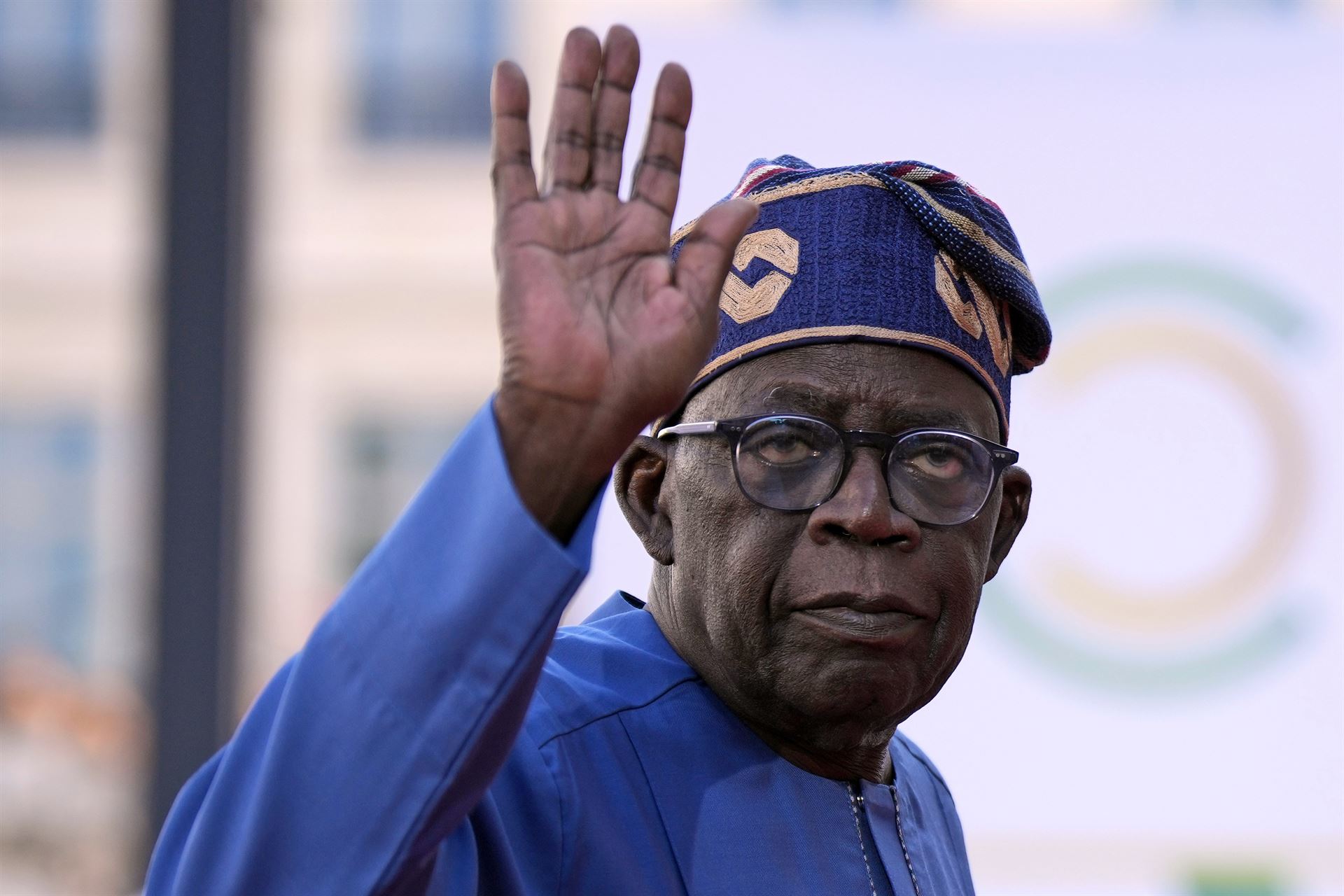
ABUJA - Nigerian President Bola Tinubu on Sunday appealed for the ongoing cost-of-living protests across the country to be halted, while urging protesting citizens to make room for dialogue with the government.
Delivering a national broadcast on Sunday morning, Tinubu expressed bitterness over the loss of lives and destruction of public and private facilities during the protests so far, saying the development is contrary to the promise of the organizers of the protests, which began on Thursday.
READ MORE: 22 killed after school building collapses in central Nigeria
"My dear Nigerians, especially our youth, I have heard you loud and clear. I understand the pain and frustration that drive these protests, and I want to assure you that our government is committed to listening (to) and addressing the concerns of our citizens," the president said, calling for an end to the bloodshed, violence, and destruction.
In addressing the concerns of the citizens, Tinubu vowed to continue to carry out reforms that will be beneficial to all Nigerians, improve and expand the national infrastructure, and create more opportunities for young people.
The Nigerian leader acknowledged the current economic hardships in the country, explaining that the economy has remained "anemic" for decades and taken a dip because of "many misalignments that have stunted our growth."
READ MORE: Suspected suicide bombers kill at least 18 in Nigeria, authorities say
Over a year ago, the most populous African country reached a point where the government could not afford to continue "the use of temporary solutions to solve long-term problems," Tinubu said, noting that he had to take the painful yet necessary decision to remove subsidies on gasoline and abolish multiple foreign exchange systems which had "constituted a noose around the economic jugular of the nation and impeded economic development and progress."
He said the country is on the path of economic recovery and prosperity, reeling out some of the government's interventions, including the approval of a new minimum wage, distribution of food items to the poor, efforts to curb food prices, disbursement of student loans, and reduction of transportation costs with the country's compressed natural gas revolution, among others, to alleviate the sufferings of the masses.
READ MORE: WHO: Nigeria becomes first country to roll out new meningitis vaccine
"Let us work together to build a brighter future for ourselves and for generations to come. Let us choose hope over fear, unity over division, and progress over stagnation.
The economy is recovering; please, don't shut out its oxygen," he said, appealing to the citizens to halt the protests.
The planned 10-day protests by the youth were intended to peacefully call on the government to address the economic hardships amid the serious cost-of-living crisis in the West African country.
The demonstrations turned violent in some major cities, prompting the police to beef up security. The inflation rate in Nigeria rose to 34.19 percent in June amid the worst cost of living crisis.


